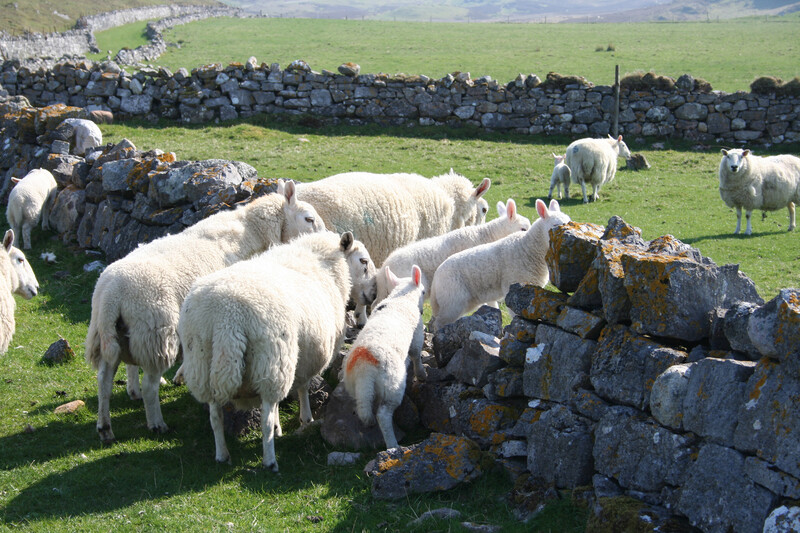Sheep and shepherding are common metaphors in the Bible. Isaiah 53.6 is one of the most quoted Old Testament references to sheep. “All we like sheep have gone astray; we have turned every one to his own way; and the Lord hath laid on him the iniquity of us all.”
I once saw a picture that expresses this verse perfectly. It was a photo of a stone fence around a sheep pasture with several stones missing at one spot. The ground was covered with snow, and the tracks of the sheep heading for the hole were all on the same path exactly. Once they got through the break in the fence however, the path of each sheep led off in different directions.
We have turned every one to his own way
All we have gone astray leaves not doubt: All humans have sinned. The one sin that we all have in common is choosing to go in our own ways, rather than in God’s way. Especially here in America, where individual freedoms have been so strongly emphasized as our unalienable right, how could that possibly be a problem with God? The answer lies in the idea that God’s ways are higher than our ways… and his thoughts than our thoughts. In fact, it’s the normal state for which we were all created in the first place. It’s supposed to be as essential to our lives as taking the next breath. Is that my experience? Sadly, no. Neither do any of the rest of us succeed consistently. That’s why the last part of Isaiah 53.6 was included.
…and the Lord hath laid on him the iniquity of us all.
Our iniquity in this verse in Isaiah is clear. We chose to leave the shepherd’s care by walking toward and ultimately through his fence, and then by choosing to live our lives in our own way, rather than God’s. Never mind listing your many virtues. ALL have sinned and come short of the glory of God. Fortunately, God’s redeemer is prophetically foreseen in this verse. Jesus paid the price for our sins by shedding his blood on the cross at Calvary, forever making the Old Testament’s blood of bulls and of goats obsolete.

